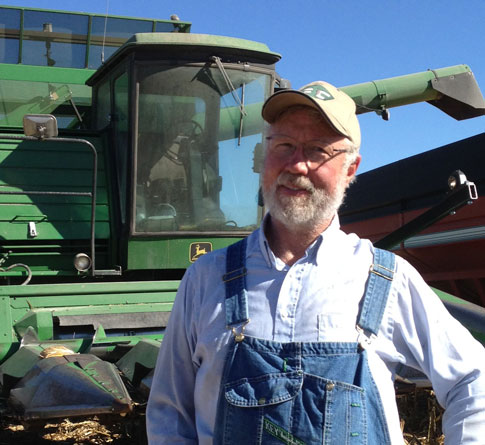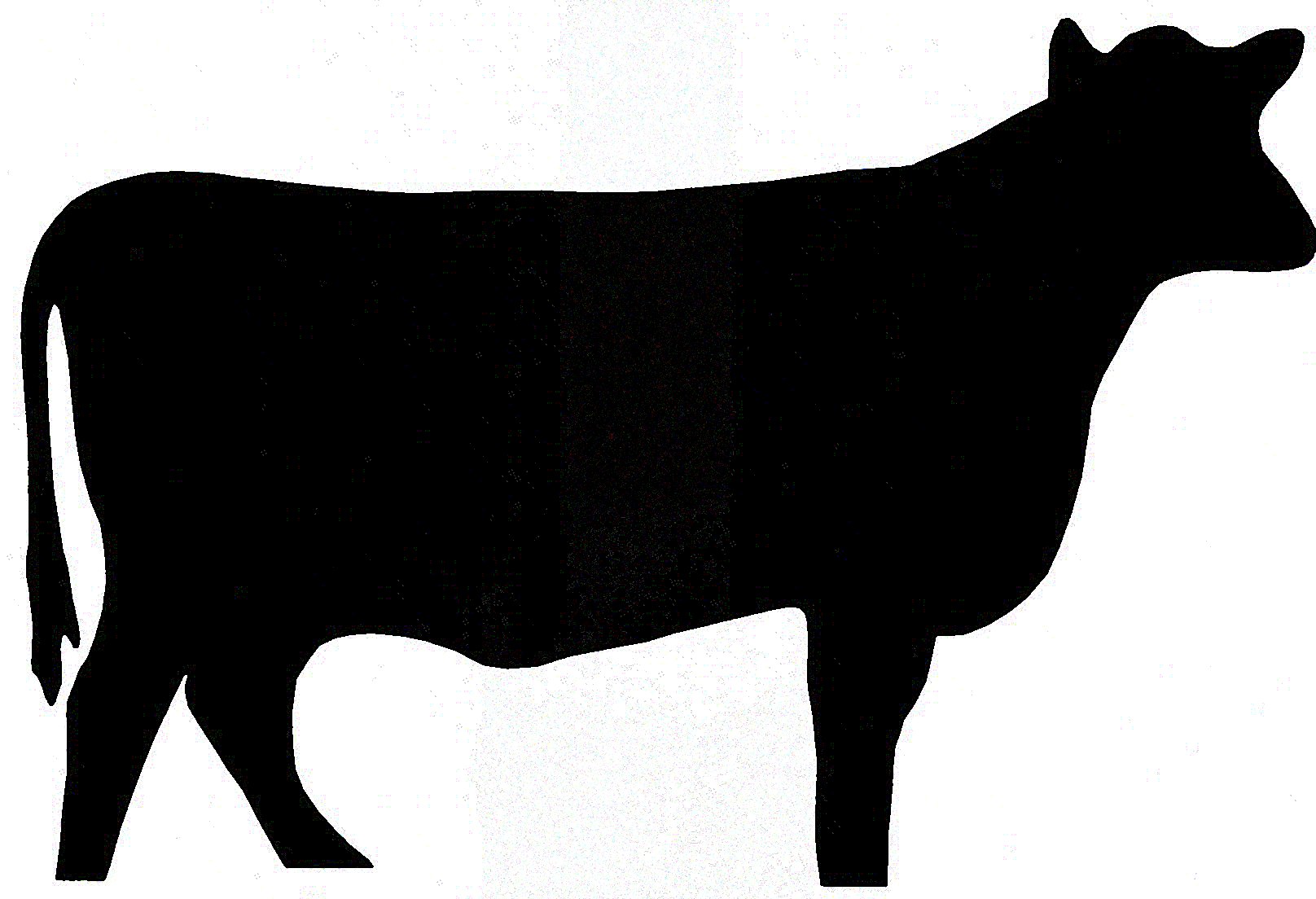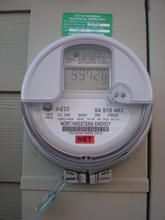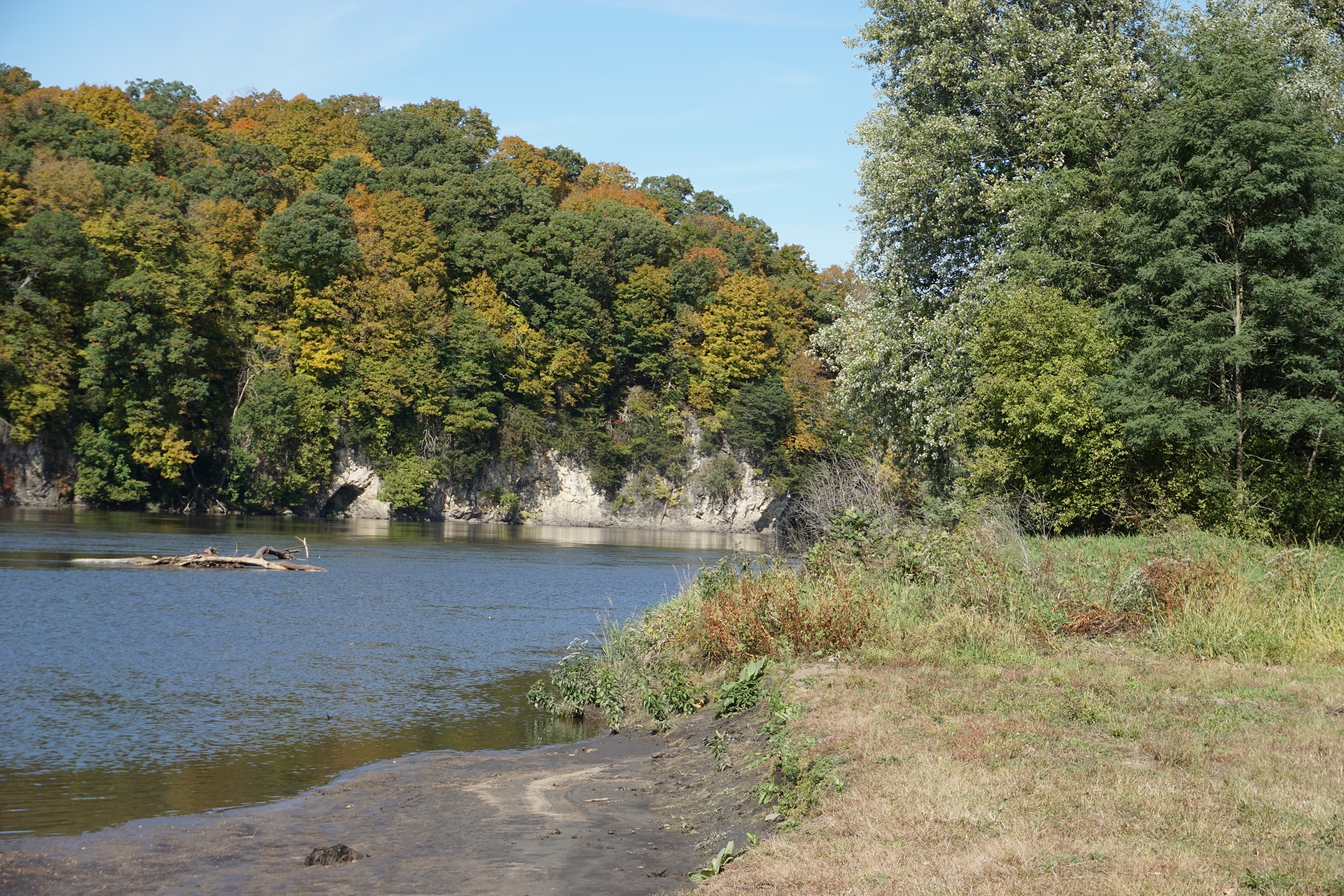As I mentioned last month, we always face surprises and suspense as legislation is introduced and moved through the legislative ![]() process. Once thing is certain - constituents play a key role in influencing the outcome. So, please contact your legislators and let them know how you are thinking about a piece of legislation or policy. In this newsletter, we have several pieces of legislation that you should discuss with your legislators - or you can e-mail them. You can also contact the legislators on committees and subcommittees working on bills you are interested in.
process. Once thing is certain - constituents play a key role in influencing the outcome. So, please contact your legislators and let them know how you are thinking about a piece of legislation or policy. In this newsletter, we have several pieces of legislation that you should discuss with your legislators - or you can e-mail them. You can also contact the legislators on committees and subcommittees working on bills you are interested in.
Pam Mackey Taylor
Chapter Director and Newsletter Editor
What you can do to help the environment
- Send an email to Kelli.Book@dnr.iowa.gov and tell the Iowa DNR that Supreme Beef's nutrient management plan does not comply with the DNR’s rules and regulations. The plan does not adequately describe how the manure will be stored, handled, and applied. It is imperative that the DNR protect the Bloody Run Creek watershed, one of Iowa’s best cold water trout streams.
- Write to your legislators about pending bills - see the details
In this issue of the Iowa Sierran
Pending legislation
Climate
-
New Report On Utility Climate Pledges
- The Dirty Truth on Iowa Utilities Emissions Plans

- The Dirty Truth
- Volunteer for the Beyond Coal Campaign
- The Dirty Truth on Iowa Utilities Emissions Plans
Water
-
Supreme Beef's 11,600 cattle CAFO threatens a trout stream
Plus
-
Book Discussion in April: "The Overstory" by Richard Powers
- Join us for interesting and informative webinars
- Contribute to the Iowa Chapter
- Volunteer for the Iowa Chapter
- To see the archive of previous Iowa Chapter newsletters
- To see the White Pine Needle newsletter
- To see the Central Iowa Newsletter
Pending legislation
We need your help in contacting your legislators on the following bills:
1. Legislators have introduced a number of bills to dismantle Iowa’s successful and popular Bottle Deposit Law. These attempts are not new. The grocers and distributors have been trying to dismantle the law for years. Ask your state representative and senator to oppose any efforts to gut the bottle deposit law, ask them to increase the handling fee from 1 cent to 2 cents, and ask that they expand the bill to cover additional containers (juice, bottled water, sports drinks). Also ask your legislator to make sure that the dealers who sell the beverages take the empties, with penalties if they do not comply. Finally the law should not require the consumer to take their empty containers great distances to a redemption center rather than a more convenient dealer - the current 10-minute standard is an appropriate distance to a redemption center. Expecting a customer to drive 40 miles round trip to a redemption center is unreasonable. Click here to take action.
2. Visionaries set up the Missouri River Preservation and Land Use Authority to preserve land along the Missouri River, to develop comprehensive plans, and to implement strategies that emphasize the creation of multipurpose recreation areas that foster and accent the natural characteristics of the Missouri River and which provide for environmentally sound land and water use practices for land adjacent to the Missouri River. Ask your state representative to oppose disbanding it while there is still work to do or click here to take action through our action alert. The bill number is SF185.
3. Currently the Iowa Code gives a property tax exemption for woodlands (called forest reservations in the law) that are at least two acres and have not less than 200 trees per acre. Woodlands and forest reservations are important to Iowa’s environment because they protect highly erodible land, cleanse the air, provide habitat, and combat climate change by capturing carbon from the atmosphere. A bill (SF352) has been introduced that would increase property taxes on forest reservations and increase the minimum acres that qualify for the tax exemption from 2 acres to 10 acres. Ask your state senator to oppose SF352.
4. Sierra Club members have been working to stop the expansion of the factory farm industry for years. We know that factory farms pollute our air, water, and communities. Methane digesters process manure to create biogas as an energy source. These digesters are expensive, break down easily, and allow for the continued expansion of the factory farm industry. And, the digester process does not fully break down the manure so we’re still left with a manure byproduct high in Nitrogen and Phosphorus.
- Email your State Representative and ask them to oppose HSB193, HF522, and HF484, bills that allow large factory farms to use methane digesters and to use taxpayer money for factory farms to install methane digesters.
- Email your State Senator and ask them to oppose SF360 and SSB1197 so that our Beginning Farm Tax Credits can’t be used for factory farms to install methane digesters.
5. Efforts are underway to implement voter suppression laws, including reducing the time frame for absentee voting, purging voter roles, and reducing the number of satellite voting stations. Contact your state representative and ask that he or she oppose HF590 and SF413.
Join us for interesting and informative webinars
Webinars
Every Friday at noon, we do a Lunch and Learn livestream. See us on Facebook at "Sierra Club Iowa Chapter".  These will be recorded so you can watch them anytime. Topics will be selected based on what is happening during the week and will be announced the day before the livestream. During the legislative session, we cover issues coming before the Iowa legislature.
These will be recorded so you can watch them anytime. Topics will be selected based on what is happening during the week and will be announced the day before the livestream. During the legislative session, we cover issues coming before the Iowa legislature.
In case you missed our past webinars and lunch and learn sessions, you can still see them.
We hope you can join us.
Supreme Beef's 11,600 cattle CAFO threatens a trout stream
They are back again! A company called Supreme Beef plans to build and operate a cattle operation in Clayton County. Supreme Beef has returned to the Department of Natural Resources (DNR) with yet another plan to build their CAFO holding 11,600 head of cattle. You may have heard this CAFO called the Walz CAFO, after the family who is building it.
Even though it is classified under DNR rules as an open feedlot, it is actually a confinement operation because the cattle are kept in a building at all times and the manure is being handled as if this were a confinement operation. The only reason this operation is called an open feedlot is because the DNR rules say that if 10% of the confinement building is unroofed, it is an open feedlot. 
In order to be allowed to dispose of the manure from the operation, Supreme Beef has submitted a nutrient management plan. This plan supposedly uses certain input data to determine how much manure can be applied to crop fields without an excess amount of manure that would run off into nearby waterways. We are especially concerned about this particular operation because the excess manure would end up in Bloody Run Creek, a trout stream that has been designated as an Outstanding Iowa Water.
A review of the nutrient management plan reveals that Supreme Beef is using incorrect data as inputs, is not doing the calculations correctly, and may be omitting important information. We are concerned that the DNR will let Supreme Beef get by with this.
What you can do:
Send an email to Kelli.Book@dnr.iowa.gov and tell the Iowa DNR that Supreme Beef's nutrient management plan does not comply with the DNR’s rules and regulations. The plan does not adequately describe how the manure will be stored, handled, and applied. It is imperative that the DNR protect the Bloody Run Creek watershed, one of Iowa’s best cold water trout streams.
Written comments will be accepted until 4:30 pm March 8, 2021 by email to Kelli.Book@dnr.iowa.gov
New Report On Utility Climate Pledges
The Dirty Truth on Iowa Utilities Emissions Plans
Submitted by Katie Rock, Campaign Representative for Sierra Club's Beyond Coal Campaign
Sierra Club’s latest national report, The Dirty Truth About Utility Climate Pledges, outlines exactly what utilities must do to reduce their emissions 80% by 2030, a target that science tells us is necessary to mitigate the worst impacts of the climate crisis. Learn about "The Dirty Truth About Utility Climate Pledges" and Iowa's largest utilities on YouTube by Katie Rock and Emma Colman.
The Dirty Truth

We are starting 2021 with clear eyes towards the future. If utilities continue playing chicken with the climate crisis, we all lose. Sierra Club’s latest national report, The Dirty Truth About Utility Climate Pledges, outlines exactly what utilities must do to reduce their emissions 80% by 2030, a target that science tells us is necessary to mitigate the worst impacts of the climate crisis. The report shows that most of the biggest utilities in the US are not doing enough. It is time to look past their clever branding campaigns and shrewd lobbying tactics, and start holding utility companies accountable.
The report gives grades to the 50 US utilities that remain most invested in coal and gas generation by looking at their latest energy plans. Many utilities have pledged vague ‘carbon neutrality’ pledges for 2040 or 2050, but that’s too little too late. We need to reverse course on emissions in this critical decade to avoid the worst effects of climate change.
The average score was 20 out of 100 for utilities with a net-zero climate pledge and 14 out of 100 for utilities without such a pledge, showing that the pledges have not led to any appreciable amount of near-term ambition or action. Climate science demands that every utility retire all of their coal plants by 2030, immediately cease building new gas plants, and aggressively build out clean energy resources to fill in the gap.
Both of Iowa’s major utilities, Interstate Power and Light (IPL) and MidAmerican Energy scored a D grade in our report. Our report shows they are average compared to other utilities. Despite its public claims, MidAmerican is not the climate leader they claim to be. In order to be a 100% clean energy company and get a top grade, MidAmerican must commit to retire all of its coal plants.
In Iowa, MidAmerican Energy (score 23) has kept its 5 massive coal plants online even as they invest in clean energy. MidAmerican continues to vaguely promise a transition to 100 percent clean energy with no commitment to retiring any of its coal plants. This leaves communities with air and water pollution left behind by coal plants, and sets Iowans on a dangerous path to a more extreme climate.
Last summer, Beyond Coal called attention to the most uneconomic coal plants in MidAmerican’s fleet -- George Neal North and South outside Sioux City. Our report showed these plants have lost $27.5 million over the past five years. The utility could save $92 million for its customers by committing to retire these plants by 2023. Yet, retiring the George Neal plants and replacing them with clean energy will get MidAmerican to only a C grade. We have advocated for the retirement of these two plants in our Coal Truth report and at the Iowa Utilities Board.
IPL, listed by parent company Alliant, (score 19) still has a way to course correct and lead on climate. The shifts it made in 2020 by announcing plans to retire coal plants in Iowa and replacing them with solar power and storage are a good start that Sierra Club supports. Last summer we outlined how IPL could reach a stronger emissions goal and reduce emissions 80% by 2030. Read more: Alliant should set more ambitious emissions goals in 2020
Utilities are overwhelmingly failing to do these three things that will correct our course toward the climate crisis. We need real climate commitments backed by concrete plans with milestones this decade to transition away from fossil fuels to clean energy, not vague promises that leave our communities breathing polluted air and our planet overheating. This is the only way to avoid the most catastrophic consequences of the climate crisis.
Volunteer for the Beyond Coal Campaign
If you would like to join our Beyond Coal volunteer committee, use this form. We plan to start our monthly volunteer calls again in March.
Book Discussion in April: "The Overstory" by Richard Powers
Join us for a book discussion of the Pulitzer Prize winning novel The Overstory in April.
“We’re cashing in on a billion years of planetary savings bonds and blowing it on assorted bling’”, so thinks one of characters in The Overstory by Richard Powers Wednesday, April 14 at 7:00pm. Reading the rich imagery, character development, plot twists, and universal truths in the novel is a powerful preparation for Earth Day. We will end the hour by collecting ways to be a change agent for Mother Earth, either by yourself or with others. Sierra Club member Kathy Getting will lead the discussion.
Click here to RSVP for the book discussion.
We are not on the earth; we are of the earth.
Farmers’ Beliefs on Climate Change are Changing
J. Gordon Arbuckle Jr., professor and extension sociologist at Iowa State University, recently released data from the 2020 Iowa Farm and Rural Life Poll. The report is summarized below:
- 81% of farmers indicated that climate change is occurring; up from 68% in 2011.
- 18% believe that climate change is mostly caused by human activities; in 2011 only 10% agreed.
- 50% of the farmers believe that extreme weather will become more frequent in the future.
- 51% indicated that they are concerned about the potential impacts of climate change on their farm operations; up from 35% in 2011.
- Nearly 60% agreed that they should take steps to protect the land they farm from increased precipitation.
- 37% agreed that programs and markets should be developed to help farmers include “carbon farming” in their farming operation; 17% disagreed.
- 39% stated that government should do more to reduce the nation’s greenhouse gas emissions and other potential causes of climate change.
Another series of questions the researches asked involved changes farmers made in managing their farming operations in light of weather variability and its impacts. Those responses include:
- 52% indicated that they had made moderate or major increases in scouting for pests and diseases.
- 43% increased no-till farming.
- 27% increased the use of cover crops.
- 32% reported an increase in the use of pesticides.
- 24% claimed they were reducing their amount of nitrogen applied per acre while 27% indicated that they were decreasing their fall application of nitrogen.
When asked if the farmer had “the knowledge and technical skill to deal with any weather-related threats to the viability of my farm operation”, the results were:
- 31% agreed
- 48% were uncertain
- 21% disagreed
The polling was supported by Iowa State University Extension and Outreach and the Iowa Agriculture and Home Economics Experiment Station.
These results are encouraging and show that farmers are understanding the impacts of agriculture and that they are willing to be part of the solution in protecting our climate and environment.
Sources
J. Gordon Arbuckle Jr, “Iowa Farm and Rural Life Poll Shows Farmers’ Beliefs on Climate Change Are Shifting”, Iowa State University Extension and Outreach, January 22, 2021
J. Gordon Arbuckle Jr, “Iowa Farm and Rural Life Poll – 2020 Summary Report”, Iowa State University Extension and Outreach, December, 2020
“The State of Iowa’s Waters”
The Sierra Club invited Dr. Chris Jones to speak via webinar on “The State of Iowa’s Waters”. Dr. Jones works in the Hydroscience and Engineering Department at the University of Iowa. He performs research related to nutrient transport in water.
Dr. Jones offered 5 points that would improve Iowa’s water quality, the low-hanging fruit:
- Ban cropping in the 2-year flood plain - over 400,000 acres of land in Iowa's 2-year flood plains are farmed.
- Ban fall tillage.
- Ban manure on snow-covered and frozen ground - on March 1, farmers can begin putting manure on the land. The land can be snow-covered and frozen on March 1.
- Make farmers adhere to ISU fertilization guidelines, guides for proper levels of fertilizer to apply to the land.
- Reformulate CAFO regulations, to deal with density of hogs in the state and to protect water quality.
You can watch the webinar "The State of Iowa's Waters".
One of the maps Dr. Jones displayed during the webinar show the watersheds in Iowa, labeled with the large cities in the world that produce the equivalent waste as the human and animal waste produced in the watershed. More information about that map is found on the blog "Iowa's Real Population"
Volunteer for the Iowa Chapter
Almost everything we do is done by volunteers like you. If you would like to volunteer for the Iowa Chapter, please let us know by sending an E-mail to Iowa.chapter@sierraclub.org. Or sign up by using the on-line form. There are many opportunities for you to make a difference:
-
making phone calls
-
developing graphics for banners and flyers

-
working on legislative issues
-
working on elections
-
fundraising
-
organizing events
-
joining an issue committee
If you would like to join a committee on the Peoples Budget, sign up here please fill out our People's Budget Volunteer Form so we can build our organizing team for this project. A large number of Sierra Club issues require some involvement with Iowa's state budget. Budgets reflect theories of government. Iowa’s political conversation rarely moves beyond the notion that government’s primary responsibility is to grow the economy. Hence we give corporations tax breaks, but slash funding for health care, environmental protections and public interest research at our three state universities. We hold a different view of government and that is government is the trustee of all the things we share - public roads and bridges, water, wildlife, air, public universities, state parks, education and public health. Therefore, protecting, enhancing and restoring our shared public wealth is the central responsibility of government. We must tie the budget to our priorities.
If you would like to join our legislative action team, sign up here. Keep on top of what is happening at the Iowa legislature. Be alerted when you should contact your legislators about pending legislation.
If you would like to join the team on a public interest research agenda, send an e-mail to iowa.chapter@sierraclub.org. The Iowa Chapter of the Sierra Club is forming a team to design a public interest research agenda, determine needed policies, and develop a strategy to implement the public research agenda. This project will be a year-long study and design group. We are especially looking for scientists who are working in climate, public health, sustainable agriculture, and related fields.
Contribute to the Iowa Chapter
Sierra Club - our best bet for achieving bold solutions to Iowa’s environmental problems
Sierra Club is Iowa’s oldest and largest grassroots environmental organization. Not only that, we are the best bet in the state for achieving bold solutions to Iowa’s environmental problems.
We work in the courts, before Iowa’s public agencies, and in the halls of the legislature. The Iowa Chapter's effort to protect the environment takes financial support. The Chapter receives very little financial support from the national Sierra Club. Can we count on you for a donation to ensure even more victories? Your contribution will be put to work here in Iowa on issues that affect every day Iowans – water quality, clean air, protection of Iowa's soil, parks and natural areas, and a strong democracy. The Iowa Chapter is relentless in fighting back bad legislation that affects every one of us.
Your non-deductible contributions make it possible for us to fight bad legislation and to promote good legislation. We appreciate your past and on-going support of these efforts. You can make a non-deductible donation with a credit card. A non-deductible donation supports the Chapter's effective, citizen-based advocacy and lobbying programs. If you prefer, a non-deductible check can be written to the Sierra Club Iowa Chapter and mailed to:
Treasurer
Sierra Club, Iowa Chapter
PO Box 1058
Marion, IA 52302
You can also make a tax-deductible donation with a credit card. Tax-deductible activities are limited to public interest education, research and legal actions. A deductible check can be written to the Sierra Club Foundation with “Iowa Chapter” written in the memo line.
Easier yet, become a monthly donor.
Thank you for your support.
Donate your used vehicle
As the Sierra Club Foundation's Iowa Chapter continues to raise charitable funds to support its work in Iowa, won’t you consider participating in our vehicle donation program? Our partners over at CARS have made the process of donating your unused or unneeded car, truck, motorcycle, boat or RV easy, efficient and secure. They’ll take care of everything from picking up your vehicle to sending you a tax receipt for your generous gift. To learn more about The Sierra Club Foundation's Iowa Chapter vehicle donation program, please call 844-674-3772. Or visit our webpage to get started today!
Sierra Club Foundation promotes climate solutions, conservation, and movement building through a powerful combination of strategic philanthropy and grassroots advocacy. The Foundation is the fiscal sponsor of Sierra Club’s charitable environmental programs.
For more information
| When | Earliest: Latest: |
| What |
|
| Word or Phrase | Word or phrase to search for: |
| Leader | All or part of leader name to search for: |
No Matching Activities Found
Loading
| Date | Activity (click title for full description) | Sponsor | Category | Type | Difficulty | Links |
|---|
Loading ...
 Outing
Outing Club support event
Club support event  Social event
Social event  Activist event
Activist event  Multiple events (map only)
Multiple events (map only)